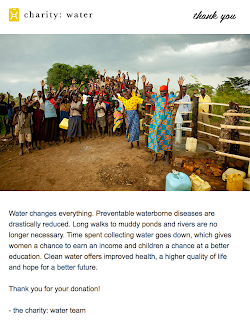Another great post from my friend, mentor and all around fantabulous lady, Debbie Meyers at the University of Maryland- Enjoy!
Like many things in
life, bench marking has its good points and bad points. On the one hand, after
hours of research and analysis, it may end up telling you what you already know
or nothing you need to know. But it can also provide you with an idea or two about
how to proceed with your project, or validation that you are indeed doing the
right things the right way.
And let's face it:
sometimes we don't have a choice. The boss says bench mark, so we bench mark.
End of story.
Regardless of your
situation, here are some questions you should consider asking yourself before
you start your bench marking journey.
1. What am I trying to find out,
exactly?
Sound like a big
duh? Not really. A common request for information involves giving societies,
where we are asked to help the bench marker "understand how peer
institutions establish various levels of giving and the respective benefits for
each level." It may be semantics, but I don’t think that’s what you want
to understand.
To find out what
you’re trying to find out, ask yourself that question, several times, until you
are crystal clear on your task. Your conversation with yourself may go
something like this:
Q: Why am I asking other organizations
about levels and benefits?
A: To see how they do it.
Q: Why?
A: Because I want to make sure I’m
following Best Practices. (In capitals, because it is now the holy shrine at
which everyone in our profession now worships as we strive to take our programs
to the Next Level – but that’s another blog topic)
Q: Why?
A: So I can ultimately figure out how
make my donors feel recognized and appreciated.
AHA! Now you’ve got
the right answer. If that’s the true reason, then why not ask your donors what
would make them feel recognized and appreciated? But let’s say you need some validation
that you’re on the right track in your levels and benefits. Remember that your
focus on your donors, not the inner workings of the institutions you’re
querying, and proceed to Question 2.
2. Do I have the right pool to bench
mark against?
So your boss says,
“Call XYZ University – everyone says they have an awesome donor relations
program.”
But is XYZ the
right fit? If I’m a small private institution, will I care about or benefit
from how a large public institution does things, regardless of how awesome
their program is or how many stewardship rock stars run their show? My levels
are based on MY donors; your levels should be based on YOUR donors. Run the
numbers and see where the logical groupings are.
Benefits don’t
benefit anyone unless they are meaningful. Some donors want parking. Others
want preferred seating at events. We are apples and oranges. So what kind of
oranges would your donors like?
Identify
institutions whose mission, size, staffing and donor base are as close to yours
as possible. It never hurts to throw in some others, for they may provide you
with some good ideas or aspirations. But your most meaningful data will be from
your peer group.
3. Am I asking the right questions in a
user-friendly format?
The best way to get
an answer is to keep your questions simple and clear. That may sound obvious,
but you’d be surprised how many questions I get that require me to pull data or
analyze a report. If you want a timely and accurate response, keep it simple.
You may want to
include an example, for clarity and consistency: something like, “We do it this
way. How do you do it?” Having a mix of
open-ended and closed-ended questions will most likely give you more
information, and certainly more context.
Also, have someone
outside your department read the questions to make sure you haven’t been in
your own little world too long with this project.
4. Would Miss Manners approve?
Remember who’s doing
who the favor. Professional courtesy is a wonderful thing, and many will
respond to your survey just because they are professionally courteous, but it has
to go both ways to work.
Take a few minutes
to make your introduction warm, friendly and informational: here’s who I am,
here’s what I’m trying to do, why and here’s why I chose you. (Great
opportunity to flatter the responder!) Sometimes including one survey to a
group, and letting everyone in the group see who else is in the group, greases
the skids in a way that one-on-one doesn’t.
Make it easy for
your responders to reply. Ask their preference in answering by phone or email.
If your questions lend themselves to a Survey Monkey format, all the better. If
by phone, let them know how long it will take. Offer to share results once the
survey is completed. That gives them an incentive to participate and shows that
you are invested in the project’s success. Include a response deadline, and
offer to be available if they have questions.
Most importantly, DO
YOUR HOMEWORK. If one of your questions is something common like endowment
minimums or naming opportunities, check the institution’s website and see if
that information is already available. And do let the person know in the intro
that you have already done that. You will earn huge brownie points.
After you finish and
send the survey results back, it’s a nice touch to add a short summary of what
you learned, ending the process on a positive note.
Happy bench marking!













